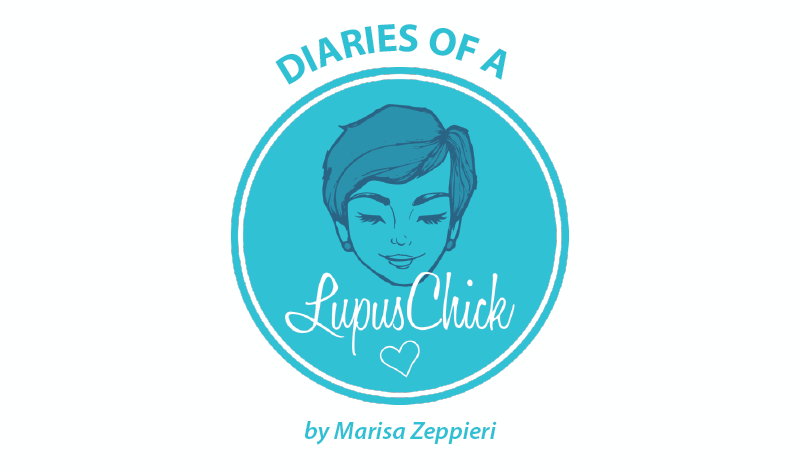How Employers Can Help Workers Living with Chronic Illness
Written by |

 Work and chronic illness is a tricky combination; for many of us, our minds are often raring to go, but our bodies can sometimes stop us in our tracks. Over the years (through LupusChick), I have met thousands of lupus patients and people with other illnesses who are having a hard time navigating the workforce. Finding a remote or telecommute job that pays enough to survive, or working for a company that understands the ups and downs of chronic illness, can be difficult.
Work and chronic illness is a tricky combination; for many of us, our minds are often raring to go, but our bodies can sometimes stop us in our tracks. Over the years (through LupusChick), I have met thousands of lupus patients and people with other illnesses who are having a hard time navigating the workforce. Finding a remote or telecommute job that pays enough to survive, or working for a company that understands the ups and downs of chronic illness, can be difficult.
There are success stories, though, and that is what made me think of writing this column. How can we create more of these success stories? I think we can take a step in the right direction when employers become more educated about chronic illnesses and see the value that workers with chronic illness can bring to an organization.
According to the World Health Organization (WHO), a chronic illness is defined as “any illness that leads to health problems and disabilities requiring ongoing management for a period of years.” Chronic illnesses are tough, especially because we never know when they are going to flare. But even dealing with the speed bumps and detours that come along with an illness, many of us want to contribute to society, and also earn a stable income that helps us get off government programs.
Sadly, it isn’t uncommon for someone with chronic illness to be ridiculed or accused of being lazy, or not wanting to work so they can “live on assistance.”
This is simply not true.
As someone living with lupus for 16 years, I can say statements like these are hurtful, ignorant and can break the spirit of someone who wants to accomplish goals and dreams.
Companies willing to hire people with chronic illnesses or disabilities and see their value can truly be a life-preserver for a person who wants to contribute.
So, how can an employer help an employee living with chronic illness succeed? Here are a few helpful tips:
- Allow for transparent conversation – Years ago, I went through a long interview process to become a journalist with Gannett. My interviewers stood apart from those of other companies because my success in the patient advocacy and chronic illness world didn’t scare them. They actually had a lot of questions for me. There was a comfort level and transparency during the interview that allowed me to be open. I told them I would need to work one or two days remotely; one day would involve me getting my IV treatment (which requires most of the day at the hospital), and the other day to recover. They were accommodating, and I took the job.
I’ve had job interviews where the topic of chronic illness took an awkward and worrisome turn. I notice it more with people who haven’t honed their interpersonal skills and perhaps have less experience around people with chronic illness. This typically makes the job interview uncomfortable and I feel less inclined to be transparent about my accommodations.
Employers committed to workplace health management should encourage transparent conversations at the start of the hiring process to understand what accommodations are needed. This lets the employee and the employer be successful. - Create a buddy system – Employers can spot leaders and mentors within their organization. These individuals are typically ideal to team up with an employee who has an illness or disability. The buddy can fill in the employee on office happenings when he or she is unable to work, take detailed notes at meetings to share or set up a Skype or FaceTime session during meetings, so the employee can watch from home. A good buddy is someone who is encouraging, displays empathy, listens well and is respectful and understanding of illness.
- Offer flextime, if applicable – More employers are offering remote, telecommute and flextime options. In addition, shifts that are broken up during the day might work better than a straight eight-hour shift. For example, at Gannett, I would work in the morning, go home for a few hours (typically nap and eat), then return late at night to write my stories and file them. It was a great fit.
The European Network for Workplace Health Promotion has some excellent guidelines for employers. What tips would you have? We would love to hear them!
***
Note: Lupus News Today is strictly a news and information website about the disease. It does not provide medical advice, diagnosis, or treatment. This content is not intended to be a substitute for professional medical advice, diagnosis, or treatment. Always seek the advice of your physician or other qualified health provider with any questions you may have regarding a medical condition. Never disregard professional medical advice or delay in seeking it because of something you have read on this website. The opinions expressed in this column are not those of Lupus News Today, or its parent company, Bionews Services, and are intended to spark discussion about issues pertaining to lupus.





Sara Cox
Great to hear this very positive approach - it is difficult partly because the illness is 'invisible' and fluctuating - imaginative and actually quite small adjustments can make a difference but all too often people with lupus are asked to fit a mould that eventually drives them from the workplace.
yet work can be such a positive alternative to thinking about lupus and earning is a great boost to self -esteem.
Suzanne Zeleznik
My (diagnosed) Lupus--dates from 1980. In 2011, Lupus Fog started being problematic. I didn't know until 2015 that I had been having mini-strokes. 0ne nite, in mid Aug. 2015, I knew
had a just had a strong stroke: I went to a PennRheumatologist, had an MRI, and was told it had been pretty strong. But my Dept. Chair where I taught, thought in 2011-2012 that I was developing Alzheimers. I retired, sadly, in 2012. I continue to have mini-strokes from time to time.
What role do? should?employers play when Loupies
Are forgetful? My forgetfulness centers on names; certain events.